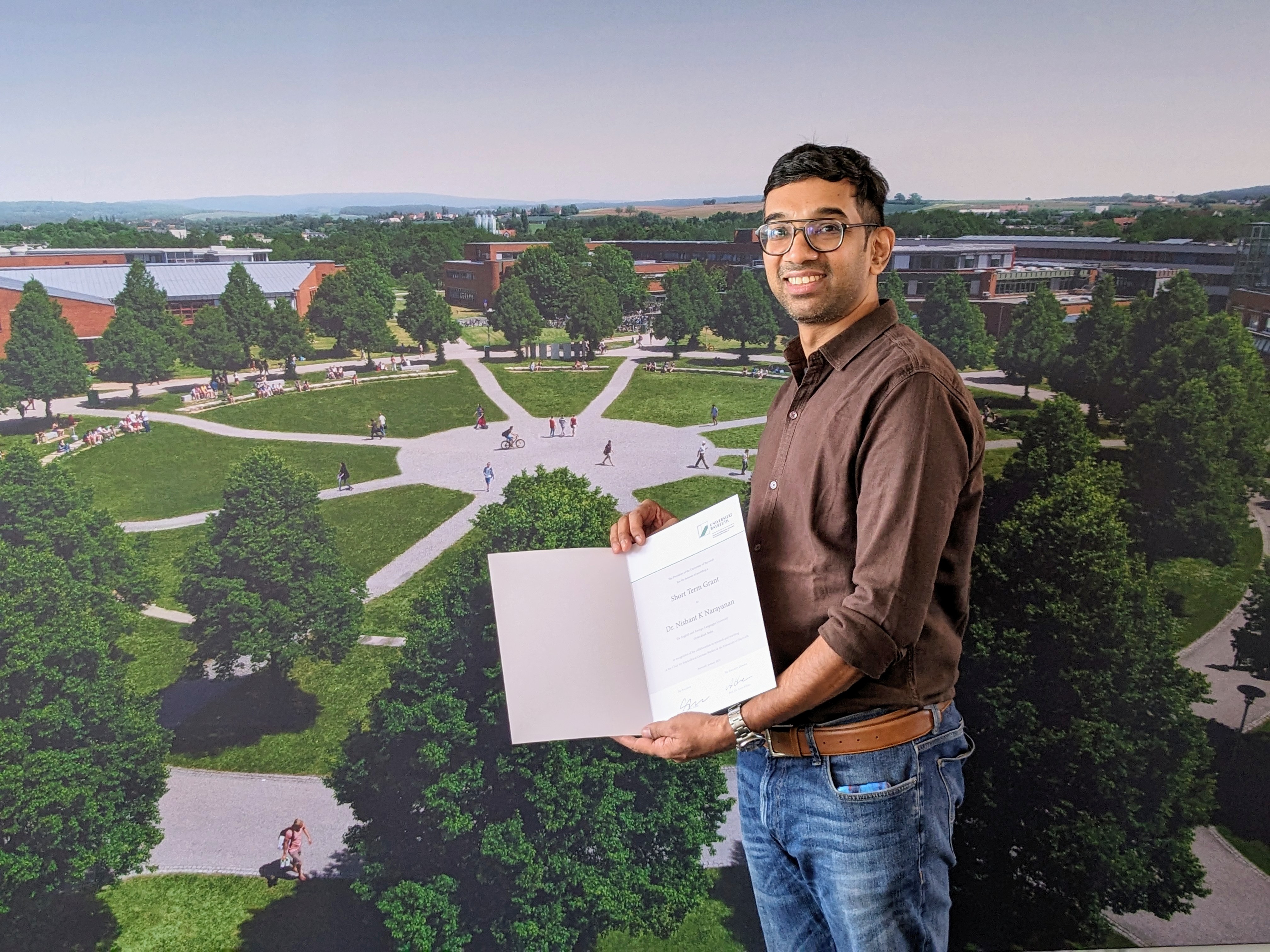Meet the Grantee: Dr Nishant K Narayanan
In the middle of languages: Exophonic overlaps between scripts, texts, languages and cultures in contemporary literature
As a German teacher in India, our Grantee Dr Nishant K Narayanan is aware of the enormous dimensions of multilingualism for research in language and literature. At the Chair of Intercultural German studies led by Professor Gesine Schiewer, he found the perfect fit for his project work on exophony.

Dr Nishant K Narayanan
Was there a special moment in your life that made you decide for your research focus?
Dr Nishant K Narayanan: Yes. Being a German teacher in a multilingual country like India, I realized the enormous dimensions of multilingualism for research in language and literature. As I further explored this topic, I came across authors and their works which dealt with these aspects in the contemporary German literature. I was searching for suitable fellowship offers which would help me to concretely think and work on my project and the Chair of Intercultural German studies at the University of Bayreuth with its focus on literary studies and multilingualism were the perfect fit for my project work.
What is in your opinion the future of your field(s)? In what way can research in your field contribute to meeting the urgent challenges of our time?
NN: Multilingualism and multiculturalism are now global phenomenon. These aspects are also getting articulated in literature, art and in fact in all walks of life. These aspects, coupled with migration, has expanded the corollary of the term diversity and has enriched literature. It has also expanded the focus on the role of languages in the context of migration and diversity. My research, which deals with the aspect of exophony, can possibly explore how literature responds to linguistic diversity and what kind of notions arise about literature, diversity, and language from multilingual authors.
What does international research mobility in today's world mean to you?
NN: International mobility means for me numerous opportunities to gain an insight into the research landscape of the host university, to explore collaborative possibilities and to mutually gain from the scholarship as well as to come up with new research knowledge.
What was your personal experience during your stay? What is your favourite spot in Bayreuth or the region?
NN: During my stay in Bayreuth, I explored the university and the city. As I am keen walker, I explored the city by foot and visited the various heritage sites. The university and the city are very cosmopolitan and there are all kinds of food options and cultural events. Also, Bayreuth’s proximity to cities like Nürnberg attracted me as I got a chance to explore this city as well. I have many favourite spots in Bayreuth, but my favourite is the Rondell in the university, which is an excellent place to relax, unwind as well as meet people.
What were your expectations when you applied for the Grant?
NN: At the first place, when I applied for the Grant, I never expected to receive it, since it is very competitive and extremely prestigious. I applied for this Grant since it provides adequate time to explore the research possibilities, get acquainted with the university and meet the prospective hosts to think and collaborate on a long-term research project.
